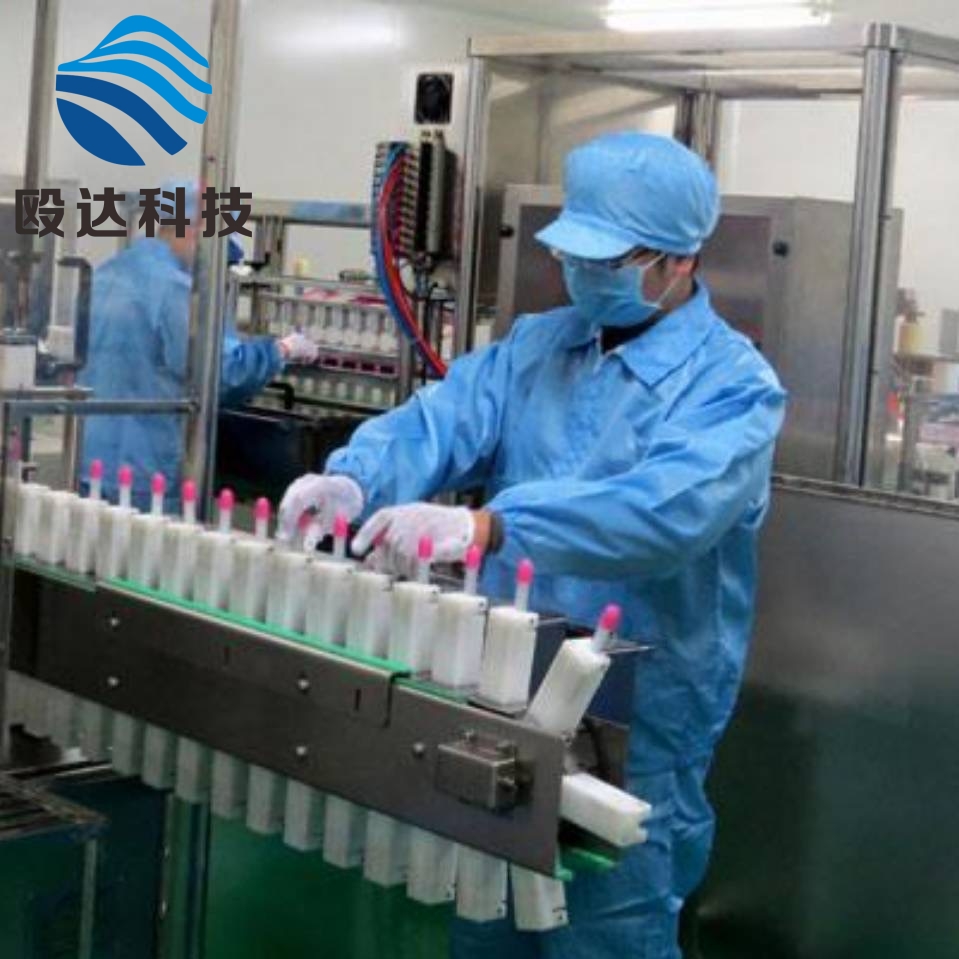-
Categories
-
Pharmaceutical Intermediates
-
Active Pharmaceutical Ingredients
-
Food Additives
- Industrial Coatings
- Agrochemicals
- Dyes and Pigments
- Surfactant
- Flavors and Fragrances
- Chemical Reagents
- Catalyst and Auxiliary
- Natural Products
- Inorganic Chemistry
-
Organic Chemistry
-
Biochemical Engineering
- Analytical Chemistry
- Cosmetic Ingredient
-
Pharmaceutical Intermediates
Promotion
ECHEMI Mall
Wholesale
Weekly Price
Exhibition
News
-
Trade Service
Written | Edited by Wang Cong | Typeset by Wang Duoyu | Shui Chengwen At the end of 2020, the US FDA urgently approved Moderna and BioNTech/Pfizer's two mRNA vaccines for the prevention of new coronary pneumonia (COVID-19).
Due to their excellent protective effects, these two mRNA vaccines This mRNA vaccine has been quickly promoted, and Israel is a representative of it
.
However, Israel, which has been vaccinated on a large scale, started to increase the new crown infection rate again in June this year
.
Worldwide, large-scale vaccination has helped control the spread of the new crown epidemic
.
But even in countries with high vaccination rates, the new crown infection rate is still not low today, and many people have breakthrough infections.
Researchers believe this is due to the immunity to the new crown virus brought by vaccination over time Gradually lost
.
Monitoring the elapsed time after vaccination and the risk of infection can help answer questions such as whether the third booster is necessary and when is the best time to get a booster
.
On November 25, 2021, the British Medical Journal (BMJ) published a research paper entitled: Elapsed time since BNT162b2 vaccine and risk of SARS-CoV-2 infection: test negative design study
.
The study showed that 90 days after receiving the second dose of Pfizer-BioNTech's new crown mRNA vaccine, the risk of contracting the new crown virus began to gradually increase
.
The results of this study confirmed that Pfizer-BioNTech's mRNA vaccine provided excellent protection in the first few weeks after vaccination, but over time, the vaccine's protective effect on some people began to weaken
.
Researchers checked the electronic health records of 80057 Israeli adults (average age 44) who underwent PCR testing at least three weeks after the second shot and had not previously been infected with the new coronavirus
.
Among the 80057 participants, 7973 (9.
6%) had a positive test result
.
These people were then matched with negative controls of the same age and race who were tested in the same week, and the results showed that the proportion of positive results began to increase over time after the second vaccine injection
.
Specifically, in all age groups, 1.
3% of participants tested positive 21-89 days after the second vaccination, which increased to 2.
4% after 90-119 days; increased to 4.
6% after 120-149 days; It increased to 10.
3% after 150-179 days; it increased to 15.
5% after 180 days or more
.
Researchers believe that these data remind us that after the second vaccine injection, the risk of contracting the new coronavirus has increased significantly over time
.
Specifically, after taking into account other potential influencing factors, compared with the first 90 days after the second vaccine injection, the risk of infection in all age groups is 2.
37 times higher after 90-119 days; after 120-149 days 2.
66 times; 2.
82 times higher after 150-179 days; 2.
82 times higher after 180 days or more
.
The researchers said that this study is subject to some conditions.
In addition, family size, population density, and new crown mutant strains may all have an impact on the results of the experiment
.
But this is a large-scale study of people who have received the same vaccine.
The research team has conducted a detailed analysis of statistical data, so overall, the conclusion is reliable
.
The research team finally concluded that in individuals who received two doses of Pfizer-BioNTech's mRNA vaccine, the protective effect appeared to decrease over time, compared with the protection provided within the first 90 days after the completion of the vaccination, the breakthrough after 90 days The risk of infection gradually increases
.
This shows that the third booster shot is necessary, and it is best to start the booster shot 90 days after the first two shots are completed
.
Link to the paper: https:// open for reprinting, welcome to forward to Moments and WeChat groups
Due to their excellent protective effects, these two mRNA vaccines This mRNA vaccine has been quickly promoted, and Israel is a representative of it
.
However, Israel, which has been vaccinated on a large scale, started to increase the new crown infection rate again in June this year
.
Worldwide, large-scale vaccination has helped control the spread of the new crown epidemic
.
But even in countries with high vaccination rates, the new crown infection rate is still not low today, and many people have breakthrough infections.
Researchers believe this is due to the immunity to the new crown virus brought by vaccination over time Gradually lost
.
Monitoring the elapsed time after vaccination and the risk of infection can help answer questions such as whether the third booster is necessary and when is the best time to get a booster
.
On November 25, 2021, the British Medical Journal (BMJ) published a research paper entitled: Elapsed time since BNT162b2 vaccine and risk of SARS-CoV-2 infection: test negative design study
.
The study showed that 90 days after receiving the second dose of Pfizer-BioNTech's new crown mRNA vaccine, the risk of contracting the new crown virus began to gradually increase
.
The results of this study confirmed that Pfizer-BioNTech's mRNA vaccine provided excellent protection in the first few weeks after vaccination, but over time, the vaccine's protective effect on some people began to weaken
.
Researchers checked the electronic health records of 80057 Israeli adults (average age 44) who underwent PCR testing at least three weeks after the second shot and had not previously been infected with the new coronavirus
.
Among the 80057 participants, 7973 (9.
6%) had a positive test result
.
These people were then matched with negative controls of the same age and race who were tested in the same week, and the results showed that the proportion of positive results began to increase over time after the second vaccine injection
.
Specifically, in all age groups, 1.
3% of participants tested positive 21-89 days after the second vaccination, which increased to 2.
4% after 90-119 days; increased to 4.
6% after 120-149 days; It increased to 10.
3% after 150-179 days; it increased to 15.
5% after 180 days or more
.
Researchers believe that these data remind us that after the second vaccine injection, the risk of contracting the new coronavirus has increased significantly over time
.
Specifically, after taking into account other potential influencing factors, compared with the first 90 days after the second vaccine injection, the risk of infection in all age groups is 2.
37 times higher after 90-119 days; after 120-149 days 2.
66 times; 2.
82 times higher after 150-179 days; 2.
82 times higher after 180 days or more
.
The researchers said that this study is subject to some conditions.
In addition, family size, population density, and new crown mutant strains may all have an impact on the results of the experiment
.
But this is a large-scale study of people who have received the same vaccine.
The research team has conducted a detailed analysis of statistical data, so overall, the conclusion is reliable
.
The research team finally concluded that in individuals who received two doses of Pfizer-BioNTech's mRNA vaccine, the protective effect appeared to decrease over time, compared with the protection provided within the first 90 days after the completion of the vaccination, the breakthrough after 90 days The risk of infection gradually increases
.
This shows that the third booster shot is necessary, and it is best to start the booster shot 90 days after the first two shots are completed
.
Link to the paper: https:// open for reprinting, welcome to forward to Moments and WeChat groups







